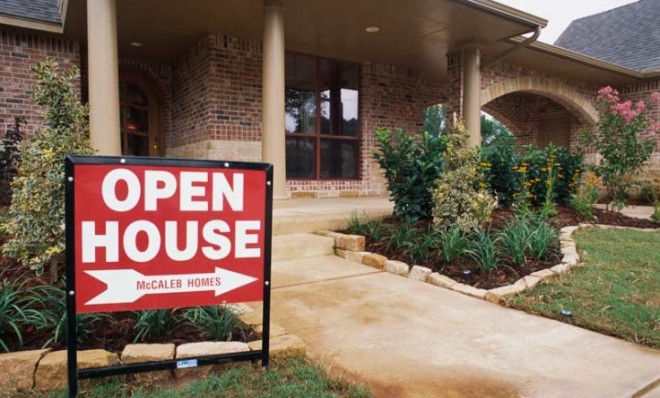Will Obama's new lending rules make it harder to get a mortgage?
The feds want to prevent risky loans like the ones that helped inflate the housing bubble. But some would-be home buyers could be left out in the cold


A free daily email with the biggest news stories of the day – and the best features from TheWeek.com
You are now subscribed
Your newsletter sign-up was successful
In a move that may radically change the housing market, the federal Consumer Financial Protection Bureau on Thursday unveiled new rules designed to essentially ban the kinds of high-risk loans that contributed to the housing bubble and the devastating crash that followed. Lenders will be barred from offering deceptive teaser rates that can lure borrowers into loans they can't afford. Banks will also have to verify homebuyers' ability to keep up with their mortgage payments. The aim of the sweeping rules, says Edward Wyatt at The New York Times, is to prevent a recurrence of the "unbridled frenzy" in lending that occurred when banks could rush to issue mortgages and then resell them, making a bundle regardless of whether the loans were ever repaid. Plus, with clear rules in place, banks will be protected against complaints of abusive lending, creating, in theory, a win-win for lenders and borrowers.
The government is essentially doing nothing more than requiring a little common sense and caution from everybody, says Danielle Douglas at The Washington Post. Of course, there's a catch. The "ability-to-pay" rules, which take effect next January, will make it harder for some people to get help realizing the American dream of owning a home.
In the run up to the meltdown, banks relaxed lending standards by failing to verify income, glazing over credit history or issuing mortgages with skyrocketing interest rates. The result was hundreds of thousands of homeowners who were ill-equipped to manage their mortgages once the market tanked.But the provision is generating angst among some industry officials and consumer advocates who say that it could have unintended consequences that would harm the mortgage market or borrowers. Lenders say that if the rule is too restrictive, it will become even harder for lower-income and first-time home buyers to get mortgages. [Washington Post]
Well, borrowing might get harder for some, but it could get easier for others, says Brad Thomas at Seeking Alpha. High-risk borrowers might very well be out of luck. But the new rules could make it easier to get a mortgage for qualified buyers who can afford to make their payments, by reassuring banks that have become skittish about making loans.
The Week
Escape your echo chamber. Get the facts behind the news, plus analysis from multiple perspectives.

Sign up for The Week's Free Newsletters
From our morning news briefing to a weekly Good News Newsletter, get the best of The Week delivered directly to your inbox.
From our morning news briefing to a weekly Good News Newsletter, get the best of The Week delivered directly to your inbox.
The meat on the bone for Bank of America and other mortgage lenders is that if they follow the framework, they will be "shielded" from litigation liability.I believe that this could spur Bank of America to actively re-grow their mortgage business, but in a safer and less risky way than ever before. [Seeking Alpha]
All the government is doing, says Ed Morrissey at Hot Air, is telling lenders they can go back to observing "rules they liked before the government forced them to stop using them." It was the government that stuck its nose into lenders' business in the 1990s with the Community Reinvestment Act and later with incentives for the subprime lending that inflated the housing bubble.
Now the government is intervening once again, in order to prevent lenders from doing what the government pressured them to do over a ten-year period, in order to avoid another collapse. This isn't a bad idea, conceptually, but I have a better proposal. Why not just get government out of the lending business and let the people whose capital is at risk decide how to invest it and lend it? Had we done that from the beginning, we never would have have the bubble in the first place. [Hot Air]
A free daily email with the biggest news stories of the day – and the best features from TheWeek.com
Harold Maass is a contributing editor at The Week. He has been writing for The Week since the 2001 debut of the U.S. print edition and served as editor of TheWeek.com when it launched in 2008. Harold started his career as a newspaper reporter in South Florida and Haiti. He has previously worked for a variety of news outlets, including The Miami Herald, ABC News and Fox News, and for several years wrote a daily roundup of financial news for The Week and Yahoo Finance.
-
 The Olympic timekeepers keeping the Games on track
The Olympic timekeepers keeping the Games on trackUnder the Radar Swiss watchmaking giant Omega has been at the finish line of every Olympic Games for nearly 100 years
-
 Will increasing tensions with Iran boil over into war?
Will increasing tensions with Iran boil over into war?Today’s Big Question President Donald Trump has recently been threatening the country
-
 Corruption: The spy sheikh and the president
Corruption: The spy sheikh and the presidentFeature Trump is at the center of another scandal
